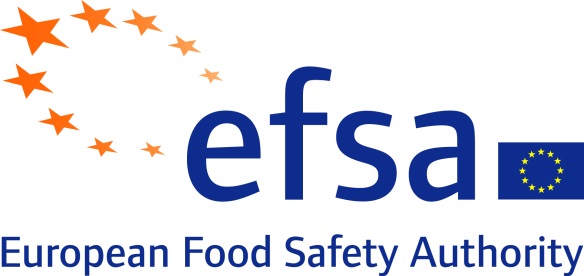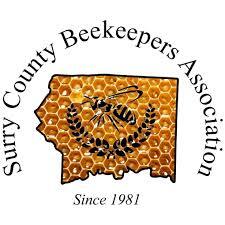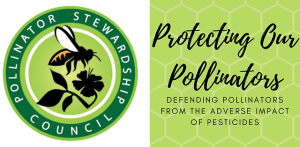In an effort to protect bees, the European Union has taken a strong stand: a near-complete ban on neonicotinoids.
Protecting bees: EU set to completely ban outdoor use of pesticides harmful to bees
Today, Member States’ representatives in a Standing Committee have backed a proposal by the European Commission to further restrict the use of three active substances (imidacloprid, clothianidin and thiamethoxam, known as “neonicotinoids”) for which a scientific review concluded that their outdoor use harms bees. The protection of bees is an important issue for the Commission since it concerns biodiversity, food production and the environment. On the initiative of President Juncker, for whom this is a priority, the College discussed this on 29 March 2017. The restrictions agreed today go beyond the measures already in place since 2013. All outdoor use of the three substances will be banned and the neonicotinoids in question will only be allowed in permanent greenhouses where no contact with bees is expected. Commissioner for Health and Food Safety, Vytenis Andriukaitis welcomed this vote, stressing that “the Commission had proposed these measures months ago, on the basis of the scientific advice from the European Food Safety Authority. Bee health remains of paramount importance for me since it concerns biodiversity, food production and the environment”. The Regulation will now be adopted by the European Commission in the coming weeks and become applicable by the end of the year.
Neonicotinoid pesticides—these include imidacloprid, thiamethoxam, and clothianidin, and are sold under various brand names—have long been pegged, albeit not without controversy, as dangerous to long-term bee health. In 2013, the EU issued a set of restrictions on their use, but last week, after a vote, the Union enacted a broad ban on all outdoor use of the three major varieties.
This category of pesticides is one of the suspected culprits of colony collapse disorder, and research has indicated that it reduces the bee’s ability to lay eggs and is also harmful to non-bee beneficial insects. Neonicotinoids have been found in honey from six continents and in drinking water in Iowa. There have been various attempts to pass legislation banning the pesticides in the US, but aside from some local victories, it remains legal here.
But this past Friday, a vote from member countries in the EU passed a total ban on outdoor use of imidacloprid, thiamethoxam, and clothianidin. The pesticides can still be used in greenhouses, but only in greenhouses that are never open to the outdoors. In a statement, the EU specifically mentioned neonicotinoids’ effect on bees as a major reason for the ban. “The protection of bees is an important issue for the Commission since it concerns biodiversity, food production and the environment,” reads the statement.
The agrochemical company Bayer CropScience, which sells much of the neonicotinoid pesticides in Europe, predictably reacted with dismay – Their press release is below.
Others, including professors interviewed by the Guardian, believe the ban does not go far enough; it is not a blanket ban on neonicotinoids, but instead a specific ban on three major products. Prof Dave Goulson, at the University of Sussex, said the EU ban was logical given the weight of evidence but that disease and lack of flowery habitats were also harming bees. “Also, if these neonicotinoids are simply replaced by other similar compounds, then we will simply be going round in circles. What is needed is a move towards truly sustainable farming,” he said.
Some experts are worried that the exemption for greenhouses means neonicotinoids will be washed out into water courses, where they can severely harm aquatic life.
Prof Jeroen van der Sluijs, at the University of Bergen, Norway, said neonicotinoids will also continue to be used in flea treatments for pets and in stables and animal transport vehicles, which account for about a third of all uses: “Environmental pollution will continue.”
The EU decision could have global ramifications, according to Prof Nigel Raine, at the University of Guelph in Canada: “Policy makers in other jurisdictions will be paying close attention to these decisions. We rely on both farmers and pollinators for the food we eat. Pesticide regulation is a balancing act between unintended consequences of their use for non-target organisms, including pollinators, and giving farmers the tools they need to control crop pests.”
Friday – April 27, 2018 Press Release from Bayer CropScience
Neonicotinoid ban: a sad day for farmers and a bad deal for Europe
The loss of neonicotinoid seed treatments will have a huge impact on European sugar beet growers.
Monheim, April 27, 2018 – Today’s decision by the EU Member States to restrict the use of certain neonicotinoids to applications in permanent greenhouses is a bad deal for the European agricultural sector and the environment, and one that will not improve the lot of bees or other pollinators. The decision will further reduce European farmers’ ability to tackle important pests, for many of which there are no alternative treatments available.
Bayer remains convinced that the restrictions are not warranted, because neonicotinoids are safe when used in accordance with the label instructions. Even under the extremely conservative evaluation criteria of the European Food Safety Authority EFSA, the most recent bee risk assessment reports (1) did not find high risks for many neonicotinoid uses where a definitive risk conclusion could be drawn; in those cases, only low risks were found for honey bees, and for wild bees the risk was also found to be low in the majority of cases.
Bayer is surprised that, once again, legislative measures are being implemented without a prior thorough impact assessment. Beyond the costs for European farmers, the restrictions in place have already brought considerable unintended consequences: a lack of alternative solutions; more spray applications, leading to more CO2 emissions; an increased risk of resistant pest insects; and a return to older, less-effective chemicals.
Numerous recent studies, inter alia by the Joint Resource Centre of the European Commission (2), have highlighted the impact of these restrictions. As it currently stands, the European crop protection industry will not be able to offer any registered seed treatments or soil-applied insecticides that could replace the current use patterns of imidacloprid and clothianidin.
It is also puzzling that Member States were asked to take a decision at this time, since the verdict of the ongoing court case (scrutinizing the legal basis of the 2013 restrictions) has not yet been delivered; this is due on 17 May. A reversal of the current restrictions could have profound implications for the legal justification of the new proposals.
Finally, the restrictions are intended to address the alleged risks the substances pose to bee health. Bayer cares about bees. They are essential for the pollination of many arable crops. But there are other, better ways to support pollinator health – such as increasing pollinator foraging options or natural habitats and more efficient control of the varroa mite – than banning substances that have helped farmers effectively manage a broad range of significant pests.
As a leading agriculture company that has a vested stake in pollinator health, Bayer has been working with partners around the globe on efforts to improve habitat and nutrition, better understand the science behind pollinator health, and improve stewardship and farmer / beekeeper communication.
1) See EFSA Journal 2018;16(2):5177 [86 pp.] and EFSA Journal 2018;16(2):5178 [113 pp.].
2) Kathage, J., Castañera, P., Alonso-Prados, J. L., Gómez-Barbero, M. and Rodríguez-Cerezo, E. (2017): The impact of restrictions on neonicotinoid and fipronil insecticides on pest management in maize, oilseed rape and sunflower in eight European Union regions. Pest. Manag. Sci. doi:10.1002/ps.4715.










